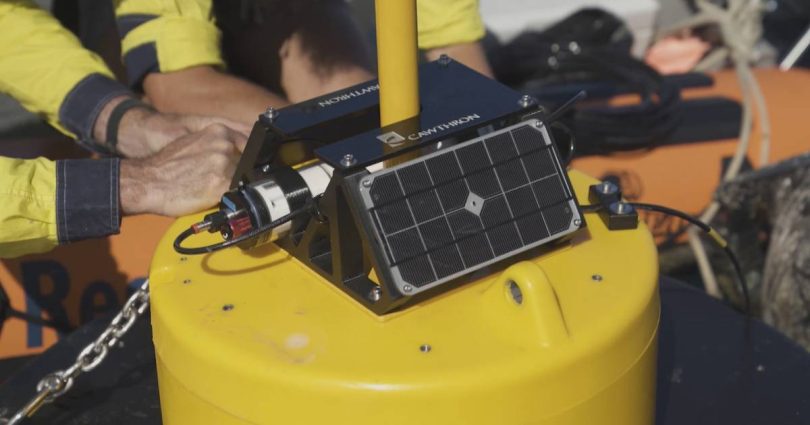[ad_1]
New research could soon allow marine farmers to check on their crops remotely, rather than going out on the water.
The research is part of a five-year project by Nelson’s Cawthron Institute to develop smart technology for the aquaculture industry.
Cawthron’s chief science capability officer, Chris Cornelisen, says the technology will make life easier.
READ MORE: Environment needs to be considered as aquaculture industry expands, expert says
“Well for farmers they have to get in a boat and actually visit their farms. Our science and technology is bringing that farm to their desk.”
Part of the research is a float which when attached to a line of sensors shows the water temperature at various depths. The information is sent back in real-time.
Water temperature is particularly important as shellfish often struggle in warmer temperatures.
Cawthron has also developed a machine that goes up and down a line of mussels, and then sends video back to a computer allowing farmers to see up close what the crop is looking like.
And in a world-first, Cawthron has attached high-tech sensors directly onto mussels in the ocean.
Cawthron marine scientist, Heni Unwin, says the information from the sensors can show what’s happening in the ocean.
“It is measuring whether a mussel is open, so it can tell you if it is feeding, it can also tell you if a mussel has a natural rhythm pattern going on or if the mussel is closed for a very long period of time”.
Cawthron, which is the country’s largest independent science organisation, has been doing the research as part of the National Science Challenge.
:quality(70):focal(-5x-5:5x5)/cloudfront-ap-southeast-2.images.arcpublishing.com/tvnz/6V4RDOMT5RAMPPVSPDWPTQBRYM.jpg)
Aquaculture has the potential to be a big earner for New Zealand, with the Government wanting to grow it to a $3 billion industry by 2035. But climate change and warming oceans could present some challenges.
Cornelisen says gathering information is important to building the industry’s resiliency.
“Data is of significant importance and something that they haven’t been collecting a lot of and we’re enabling that.”
NIWA’s Niall Broekhuizen studies the environmental effects of aquaculture and says all those involved are already looking at ways to mitigate potential future challenges.
Broekhuizen says better information will help with decision making.
“That gives the industry options…. which farms should we go out and visit right now because there is some evidence of a problem and which ones can we afford to leave for several months because we’re confident that crop is healthy.”
While much of the research has been done on mussels, it could also be used on other shellfish and even salmon farming.
The Cawthron Institute’s programme of research finishes in June and it’s hoped will be rolled out worldwide.
[ad_2]
Source link








